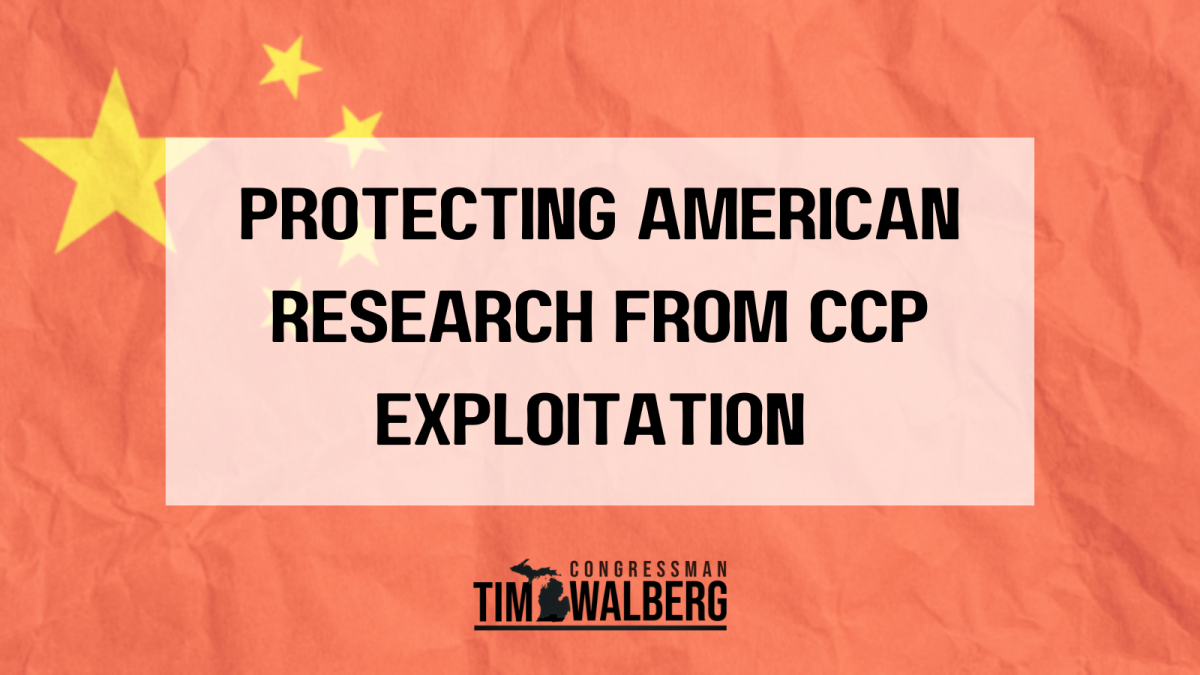Michigan Farm News: Congressional investigation wants answers from U of M on Chinese researcher smuggling incidents

Congressman John Moolenaar, chairman of the U.S. House Select Committee on China, and Congressman Tim Walberg, who serves as chair of the House Committee on Education & Workforce, are raising the alarm over potential agroterrorism threats resulting from two separate cases in June.
Both cases involved Chinese researchers attempting to smuggle banned biological materials into the U.S. for additional research in University of Michigan (UM) laboratories.
On June 2, 2025, the U.S. Department of Justice charged Yunqing Jian and Zunyong Liu, both citizens of the People’s Republic of China (PRC), with conspiracy, smuggling goods into the U.S., making false statements, and visa fraud.
Just five days later, on June 8, 2025, authorities arrested Chengxuan Han for smuggling biological materials into the U.S. and making false statements to border officials, exposing a troubling pattern of apparent criminal activity within a single week.
In a lengthy 10-page letter to National Institutes of Health (NIH) Director Dr. Jay Bhattacharya and National Science Foundation (NSF) Director Brain Stone, Moolenaar and Walberg called on both agencies to review approximately $9.6 million in federal research grants awarded to two UM professors whose labs hosted the Chinese researchers.
“The Committees found that Jian and Liu conducted research under the supervision of, or in concert with, UM professors funded by the National Institutes of Health (NIH) and the National Science Foundation (NSF),” the Congressmen wrote.
“It is our position that Chinese researchers tied to the PRC defense research and industrial base have no business participating in U.S. taxpayer-funded research with clear national security implications — especially those related to dangerous biological materials.”
The Congressmen also requested NIH and NSF conduct a full review of all grants awarded to UM related to both cases to assess national security vulnerabilities, potential violations of grant terms, and conditions and disclosure failures.
“Pending the outcome of the review, we encourage your agencies to consider all possible remedies and disciplinary actions,” the letter added.
In separate letter to UM President Domenico Grasso, the Congressmen requested the university provide details regarding oversight, compliance practices, and any internal reviews related to researchers involved in the smuggling cases.
“Given the recent criminal charges within the span of a week, the Committees have respectfully urged the NIH and NSF to initiate a full review of any grants related to these incidents,” the Congressmen wrote.
“To support this effort, we request that UM produce all documents and records of any due diligence, investigations, or other reviews — conducted by or on behalf of UM — concerning conflicts of interest or commitment involving any UM faculty, researchers, or individuals granted access to UM facilities.”
The two recent smuggling cases comes after previous research security concerns were raised regarding the university's relationships to the PRC.
Earlier this year, the university announced it had closed its joint institute with Shanghai Jiao Tong University following a letter from Chairman Moolenaar that outlined the school's ties to Chinese military modernization efforts.